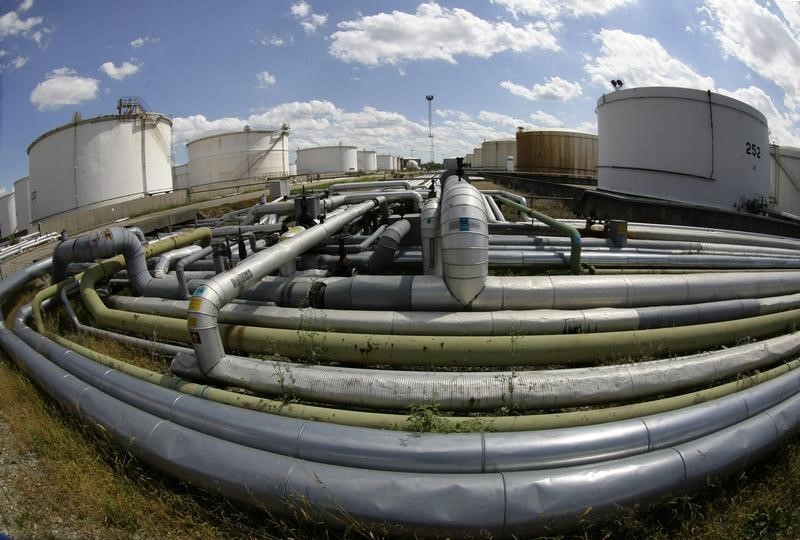* Saudis cutting back output but other OPEC members keep pumping
* Soaring U.S. production further undermines OPEC's cuts
* IEA expects glut to last despite demand hitting 100 mln bpd
By Henning Gloystein
SINGAPORE, June 15 (Reuters) - Oil prices wallowed near their lowest levels in seven months early on Thursday, hurt by high global inventories and doubts over OPEC's ability to implement production cuts.
Brent crude futures LCOc1 were down 7 cents or 0.2 percent at $46.93 per barrel at 0053 GMT, after slumping nearly 4 percent in the previous session.
U.S. West Texas Intermediate (WTI) crude futures CLc1 were down 12 cents or 0.3 percent at at $44.61 per barrel.
Crude futures benchmarks are sitting near their lowest levels since late November last year when production cuts led by the Petroleum Exporting Countries (OPEC) were first announced.
Brent and WTI are down over 12 percent since their opens on May 25, when the agreement to cut was extended to the end of the first quarter next year, instead of expiring this month as initially planned.
"OPEC 2017 year-to-date exports are only down by 0.3 million barrels per day (bpd) from the October 2016 baseline," analysts at AB Bernstein said in a note to clients.
OPEC's pledge was to cut some 1.2 million bpd, while other producers including Russia would bring the total reduction to almost 1.8 million bpd.
However, some OPEC members including Nigeria and Libya have been exempt from cutting, and their rising output undermines efforts led by Saudi Arabia.
Meanwhile, production in the United States - which is not participating in the deal - has jumped by more than 10 percent over the past year to 9.33 million bpd. C-OUT-T-EIA
"Production growth in Libya and Nigeria and continued rig additions in U.S. are complicating the picture, raising doubts on OPEC's strategy. For OECD inventories to return to the normalized levels, OPEC needs to drain by 34 million barrels a month or 1 million barrels for the next 10 months. This looks challenging," AB Bernstein said.
The International Energy Agency (IEA) said this week that oil supplies next year would still outpace demand despite consumption hitting 100 million bpd for the first time. COLUMN-OPEC and U.S. shale drillers are on collision course: Kemp
